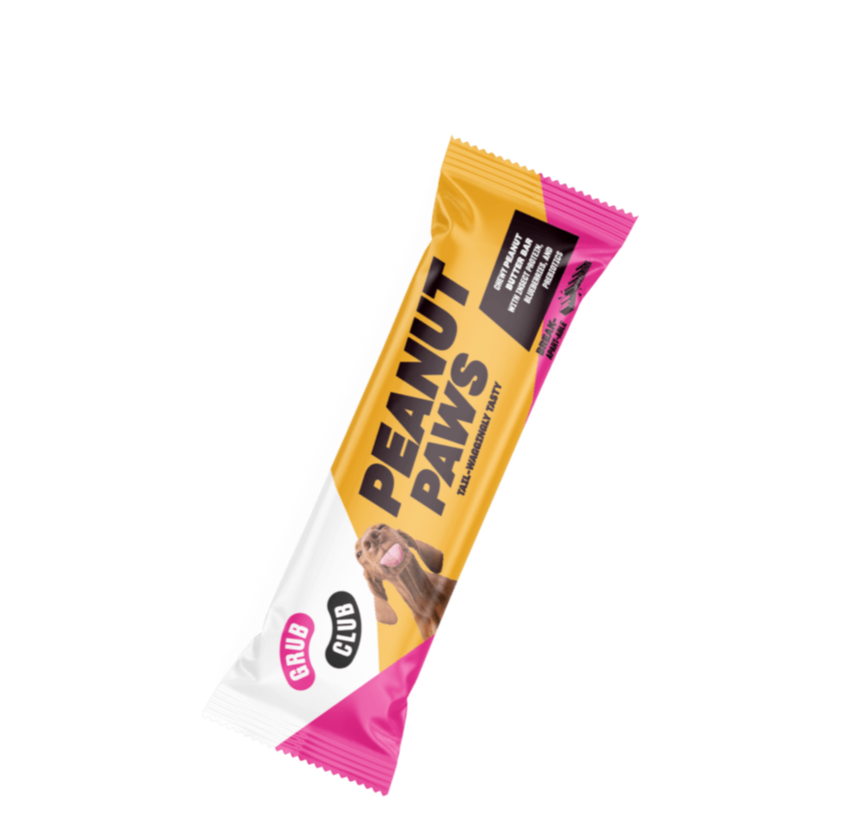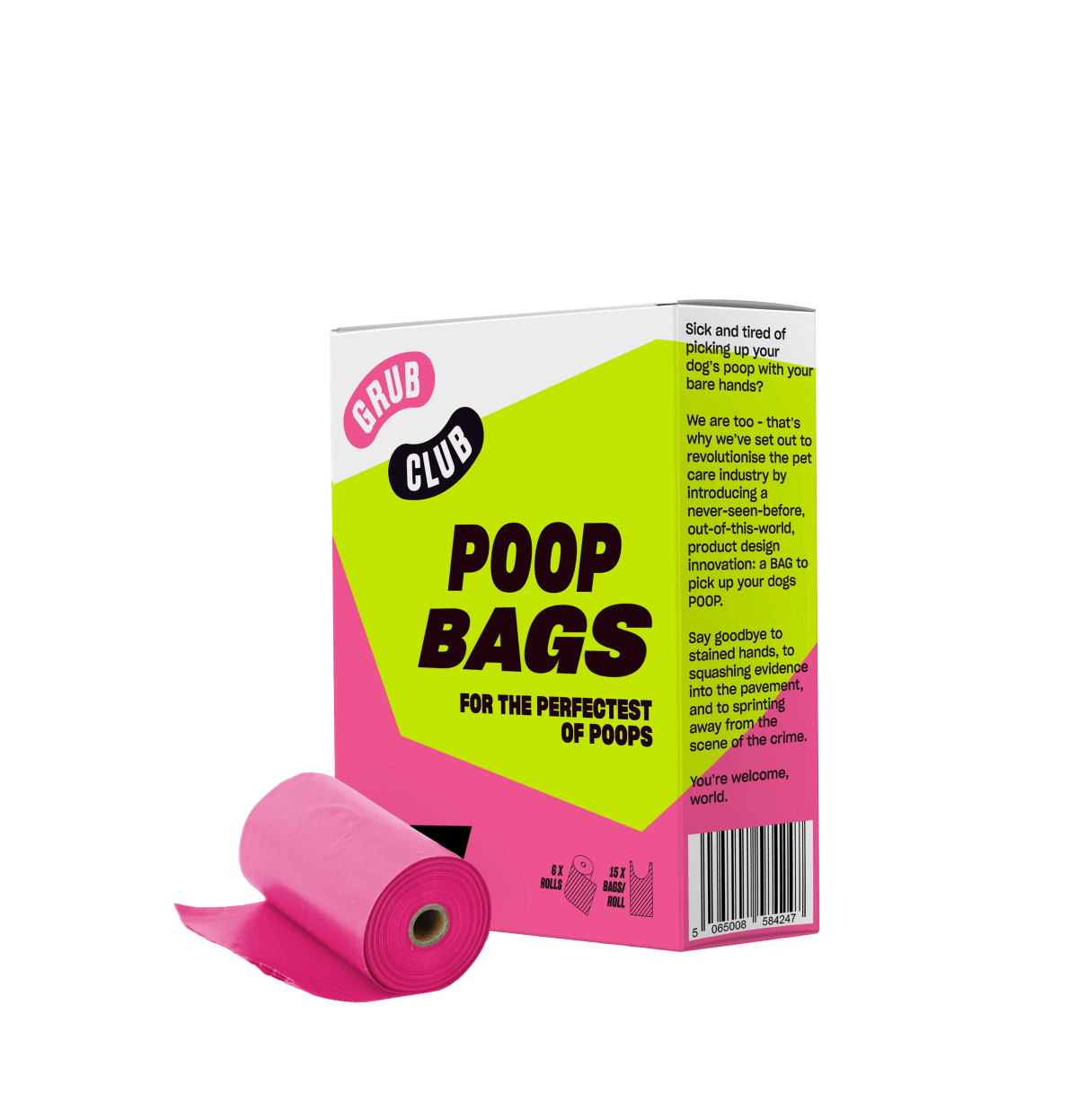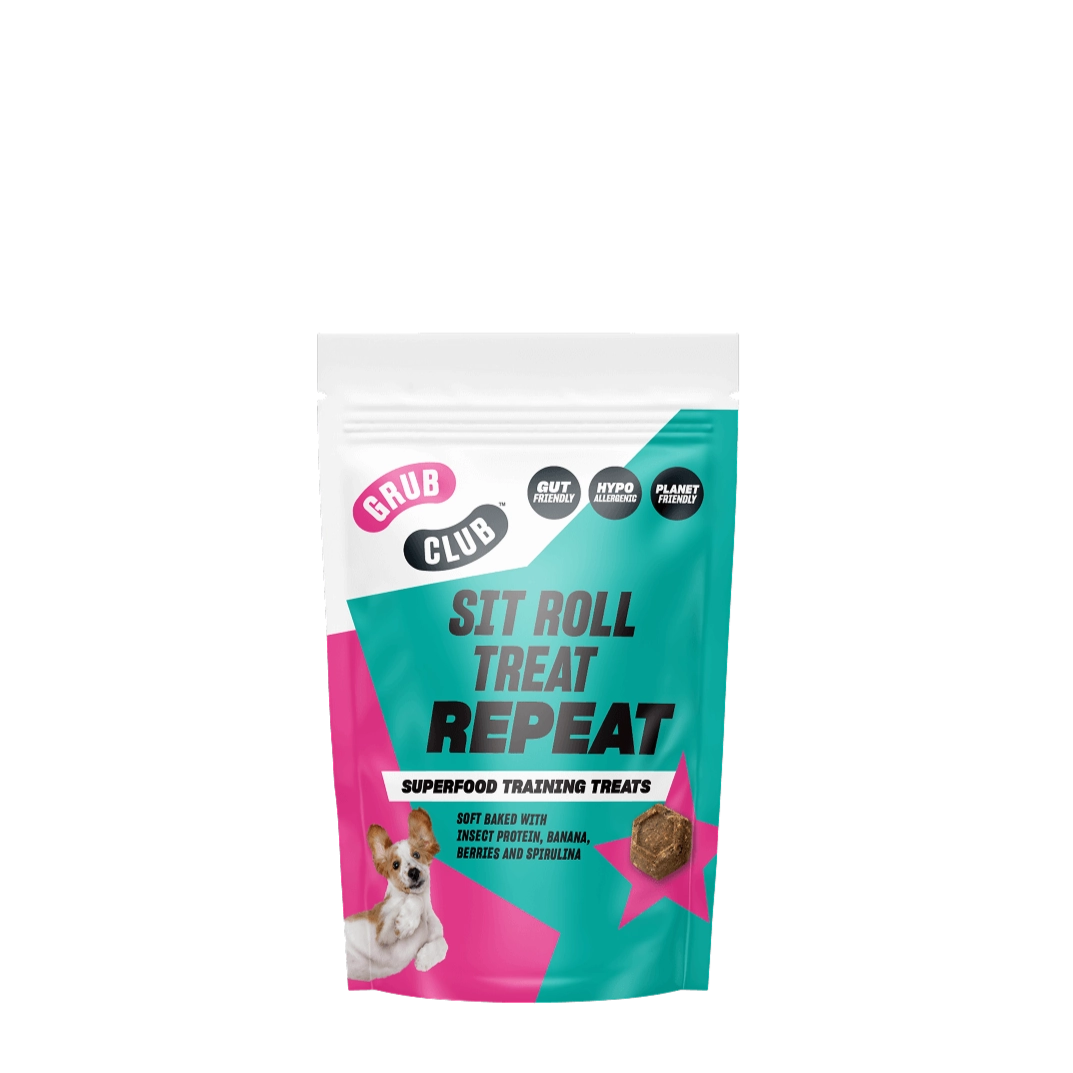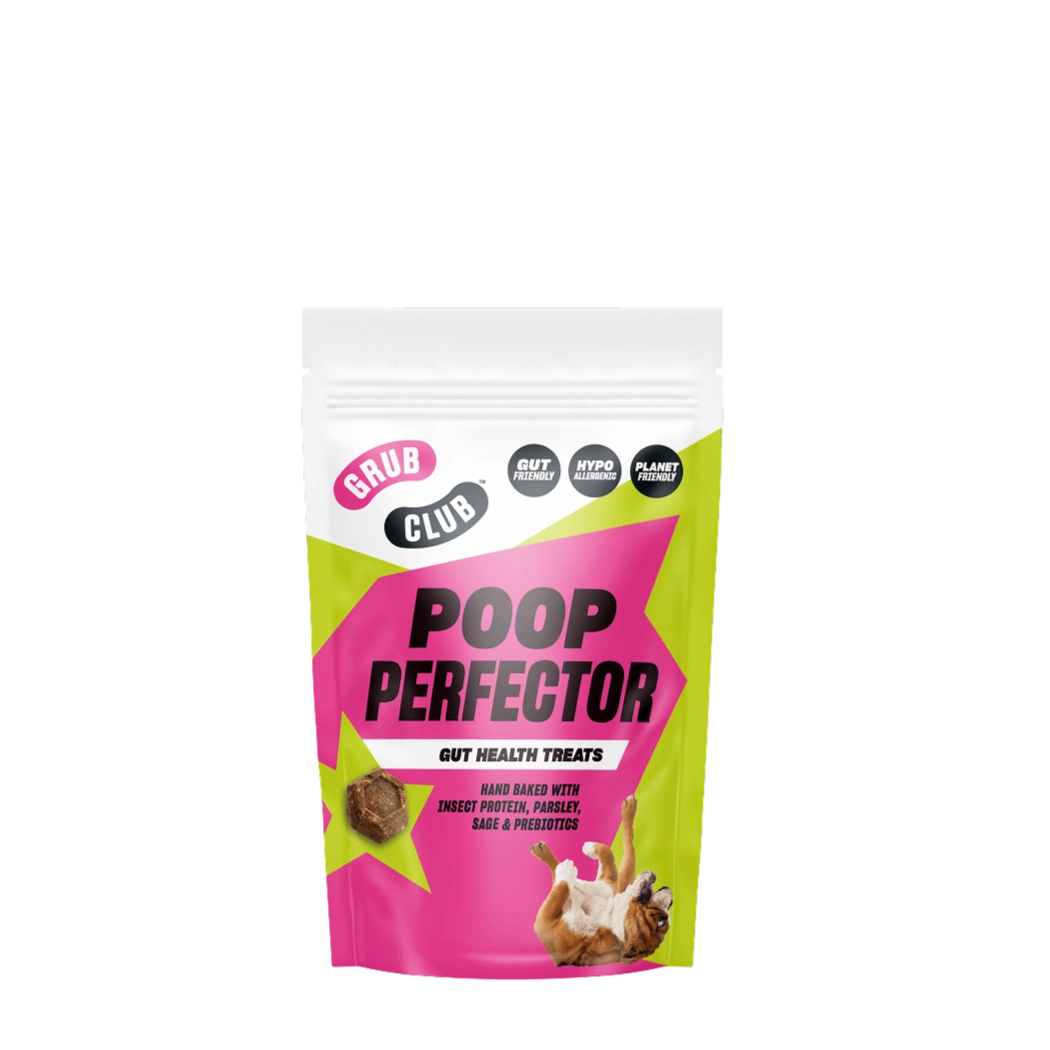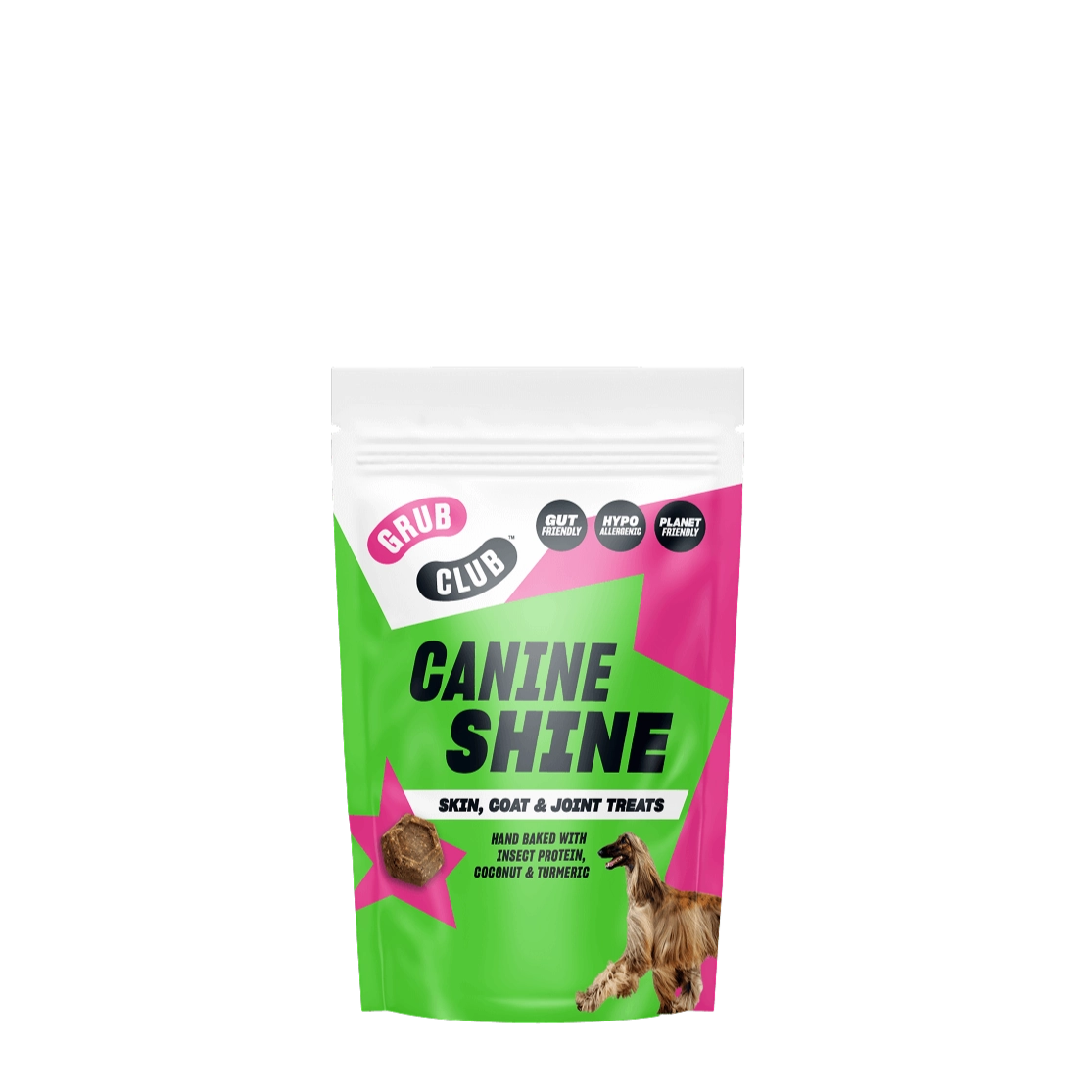Top Dog: All-In-One
Supplement for Snout-to-Tail Wellness
60 Scoops
FREE UK Delivery on orders above £49.
You have £0.00 in your cart, spend £49.00 more and get free shipping.
60 Scoops
1 Bar
72 Bags
1 Pack
1 Pack
1 Pack
Or continue without a name
CheckoutIs your pup dealing with constant tummy troubles, excessive gas (we’ve all been there) or those dreaded loose stools? You’re not alone. Many dog parents are seeing similar symptoms and are also on the hunt for the answers… And guess what? The culprit is usually their diet. But don’t fret, we are here to reassure you that there is hope at the bottom of that food bowl because, with the right dog food, your pooch should go from gassy and bloated to happy and energetic in no time. Let’s take a look at all things to do with your doggo’s gut health and the best dog food options available for sensitive stomachs.
So, what’s behind your dog’s digestive drama? There are a few usual suspects:
Dogs can be allergic to common ingredients like beef, chicken, dairy or wheat. If your dog’s immune system decides that a particular ingredient is “Public Enemy No.1“, it triggers all sorts of issues, from itching to gut problems, ear infections and loose stools. Think of it like your dog’s body shouting, “NOPE, we’re not doing chicken today!”
Ever switched your dog’s food overnight only to find yourself cleaning up… Well, the consequences? Dogs need a gradual transition when switching foods. Changing things up too quickly can cause some serious upset tummies.
Yes, dogs can be sensitive creatures too! Moving house, new family members or even loud noises can send them spiraling into tummy trouble town. Anxiety isn’t just about barking or whining, it can mess with their digestive systems too.
Sometimes, gut issues go beyond what’s in the food bowl. Conditions like IBS, IBD or even pancreatitis can leave your dog feeling less-than-stellar after every meal. If things aren’t improving, it’s vet time!
When your dog’s stomach isn’t feeling up to snuff, you’ll usually know pretty quickly. Keep an eye out for these red flags:
Yeah, no one likes to talk about it, but when the poop’s not right, something’s going wrong inside.
If your dog is regularly bringing their meals back up (yikes), it could be a sign that their stomach just isn’t handling their food.
Let’s be honest, most dogs can be gassy at times but if your pup’s turning your living room into a wind tunnel, something might be off in their diet.
If your dog starts giving their food bowl the side-eye and walking away, their sensitive stomach might be to blame.
Nobody feels energetic when their stomach is a mess. If your normally peppy dog suddenly turns into a couch potato, that’s a sign something’s up.
So, your dog’s got tummy troubles, now what? Don’t worry, there’s plenty you can do to help.
Hypoallergenic foods are like superheroes for dogs with food sensitivities. These foods avoid common allergens like beef or chicken, using more novel proteins like venison, duck or even insects. Yep, you heard that right we did say insects! They’re not just for survival shows anymore. In fact, they’re pretty great for sensitive pups (but more on that later). Why not check out our hypoallergenic wet and dry dog food AND our Poop Perfector Treats to see how we’ve turned doggy dinner into a gut-friendly feast?!
If you’re not sure what’s causing the issue, an elimination diet could be your answer. This involves cutting out potential problem foods and reintroducing them one by one until you find the culprit. It’s a bit like detective work but for dog food!
You’ve probably heard about probiotics for humans, but guess what? They’re awesome for dogs too. Probiotics for dogs, along with prebiotics, help maintain the balance of healthy gut bacteria, making digestion smoother and promoting overall gut health.
A balanced gut is essential for preventing discomfort, reducing inflammation, and supporting immune function. Including probiotics and prebiotics in your dog's diet can make a significant difference, especially for dogs with sensitive stomachs.
When choosing a probiotic for your dog, it’s important to pick one that is specifically designed for canine digestion. Not all probiotics are the same, and dogs have different needs than humans. Here are a few key factors to consider when selecting a good probiotic for your dog:
Species-Specific Strains: Look for probiotics that contain strains of bacteria that are beneficial for dogs, like Lactobacillus acidophilus or Bifidobacterium animalis. These strains are specifically suited to support canine digestion.
High CFU Count: CFU (colony-forming units) is a measure of the number of live bacteria in the probiotic. A high CFU count ensures that enough probiotics reach your dog’s gut to provide the intended benefits.
Veterinary Approval: Choose a probiotic that is recommended or approved by veterinarians to ensure it’s safe and effective for your dog.
Quality and Safety: Make sure the probiotic is manufactured in facilities that follow high-quality standards and are free from harmful additives or preservatives.
Prebiotics are also a crucial part of making sure all of those gut-boosting bacteria have something to feed on. Find out why prebiotics matter here.
Certain ingredients are more likely to stir up stomach issues than others. Here are the usual suspects:
You bet it is! Insect-based dog food might sound a bit unconventional, but it’s one of the best things you can feed a dog with a sensitive stomach. Why? Let us break it down:
Grub Club’s All-Day Buffet insect-based food is specially formulated to be gentle on sensitive tummies, while giving your dog all the nutrition they need.
If your dog’s tummy woes aren’t clearing up with a few diet tweaks or keep coming back like that one persistent friend, it’s definitely time to see the vet. An upset stomach in dogs can be caused by something simple, but it could also be a sign of an underlying health issue that needs professional care.
What Will the Vet Look For or Ask About?
Your vet will start by gathering as much information as possible to get to the bottom of the issue. They will likely ask you:
What Tests Will the Vet Perform During the Initial Assessment?
After chatting with you, your vet will perform a physical exam to check for any signs of illness or discomfort. They may:
What Further Tests Might Be Needed?
If the initial exam doesn’t reveal the cause, your vet might recommend further tests, such as:
What Treatments Might Be Recommended?
Depending on the cause of your dog’s upset tummy, the vet might suggest a variety of treatments, including:
If your dog’s stomach woes are more than a one-off case, a vet visit is essential to get them back on track. With a little detective work and the right treatment plan, your dog will be back to those tail-wags in no time!
Prevention is always better than cure. Here are a few ways you can keep those sensitive tummies happy:
At Grub Club, we’ve cracked the code to happy, healthy tummies with our range of insect-based wet and dry dog food. Our recipes are hypoallergenic, highly digestible and full of gut-loving prebiotics, making them the perfect choice for dogs with sensitive stomachs.
Here’s why we think we’re the best in the dog food biz:
Ready to give your dog the gut-friendly goodness they deserve? Shop our range of insect-based dog food today, and see the difference it makes.
Your dog (and your nose) will thank you!

